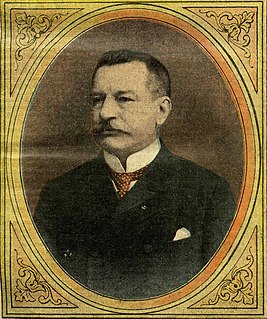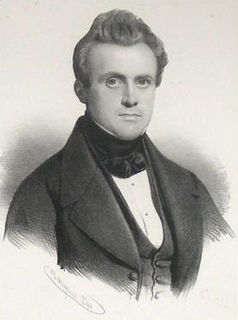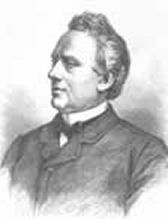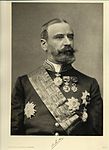
General elections were held in Belgium on 23 May 1965. The result was a victory for the Christian Social Party, which won 77 of the 212 seats in the Chamber of Representatives and 44 of the 106 seats in the Senate. Voter turnout was 91.6%. Elections for the nine provincial councils were also held.

Full general elections were held in Belgium on 14 October 1894, with run-off elections held on 21 October 1894.

Partial legislative elections were held in Belgium on 5 and 12 July 1896. Under the alternating system, elections were held in only five out of the nine provinces: Antwerp, Brabant, Luxembourg, Namur and West Flanders. Thus, only 77 seats out of the 152 seats in the Chamber of Representatives were up for election. The Catholic Party retained their absolute majority.

Partial legislative elections were held in Belgium on 22 May 1898, with run-off elections held on 29 May. Under the alternating system, elections for the Chamber of Representatives were held in only four out of the nine provinces: Hainaut, Limburg, Liège and East Flanders. Thus, only 75 seats out of the 152 seats in the Chamber of Representatives were up for election. The Catholic Party retained their absolute majority.

Partial general elections were held in Belgium on 25 May 1902. The result was a victory for the Catholic Party, which won 54 of the 85 seats up for election in the Chamber of Representatives. Voter turnout was 95.7%.

Partial general elections were held in Belgium on 27 May 1906. The result was a victory for the Catholic Party, which won 50 of the 85 seats in the Chamber of Representatives.

Partial general elections were held in Belgium on 24 May 1908. The result was a victory for the Catholic Party, which won 37 of the 82 seats in the Chamber of Representatives. The François Schollaert government remained in office.

Partial general elections were held in Belgium on 22 May 1910. The result was a victory for the Catholic Party, which won 49 of the 85 seats up for election in the Chamber of Representatives.

Partial general elections were held in Belgium on 24 May 1914. The result was a victory for the Catholic Party, which won 41 of the 88 seats up for election in the Chamber of Representatives.

Partial general elections were held in Belgium on 8 June 1847. The result was a victory for the new Liberal Association, which had been formed the previous year. It won 33 seats to the Catholics' 21, as the latter were split into dogmatic and liberal groups. Voter turnout was 77%, although only 1% of the country's population was eligible to vote.
Partial legislative elections were held in Belgium on Tuesday 9 June 1835. In the Senate elections Catholics won 31 seats and Liberals eight. Only 23,000 people were eligible to vote in the election.
Partial legislative elections were held in Belgium on 11 June 1839. In the Senate elections Catholics won 27 seats and Liberals 12. Voter turnout was 66.4%, although only 23,661 people were eligible to vote.
Partial legislative elections were held in Belgium on 12 June 1843. In the Senate elections Catholics won 32 seats and Liberals 13. Voter turnout was 86.0%, although only 21,865 people were eligible to vote.

Partial general elections were held in Belgium on 8 June 1852. In the elections for the Chamber of Representatives the result was a victory for the Liberal Party, who won 57 of the 108 seats. Voter turnout was 69.2%, although only 42,053 people were eligible to vote.

Partial general elections were held in Belgium on 10 June 1856. In the elections for the Chamber of Representatives the result was a victory for the Catholics, who won 63 of the 108 seats. Voter turnout was 60.6%, although only 43,573 people were eligible to vote.

Partial general elections were held in Belgium on 11 June 1861. In the elections for the Chamber of Representatives the result was a victory for the Liberal Party, which won 66 of the 116 seats. Voter turnout was 58.4%, although only 47,555 people were eligible to vote.

Partial general elections were held in Belgium on 11 June 1870. In the elections for the Chamber of Representatives the Liberal Party and the Catholic Party both won 61 seats. Voter turnout was 60%, although only 51,435 people were eligible to vote. Early elections were held later in the year.

Partial general elections were held in Belgium on 9 June 1863. The result was a victory for the Liberal Party, which won 59 of the 116 seats in the Chamber of Representatives and 33 of the 58 seats in the Senate. Voter turnout was 74.5%, although only 52,519 people were eligible to vote.
Partial legislative elections were held in Belgium on Tuesday 13 June 1837 in which 51 of the 102 seats in the Chamber of Representatives were elected. Voter turnout was 56.0%, although only 24,526 people were eligible to vote. Under the alternating system, Chamber elections were only held in five out of the nine provinces: Antwerp, Brabant, Luxembourg, Namur and West Flanders. The Senate was not up for election.
Partial legislative elections were held in Belgium on 10 June 1845 in which 48 of the 95 seats in the Chamber of Representatives were elected. Voter turnout was 77.0%, although only 22,771 people were eligible to vote.












